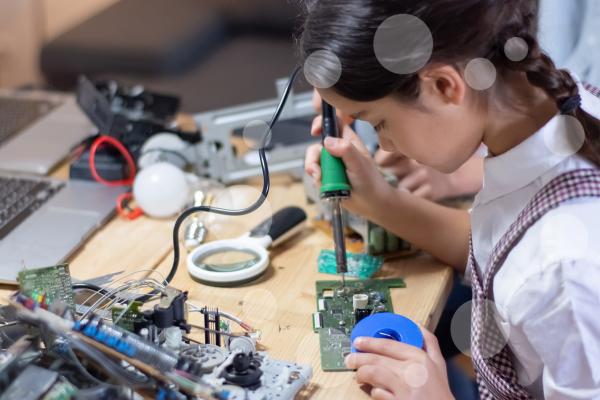The nature and rate of technological change (on the demand side), the ageing of the EU population, migration flows in and out of Europe (on the supply side) and the need to improve the sustainability of our socio-economic model, are all factors that rise the importance of competences and skills as essential elements for the future of the European economic and social model (including competitiveness).
The role of the JRC is to provide robust and objective evidence that can then be used in policy development, implementation and evaluation. Clear and robust evidence can help policy-makers to situate skills needs in context, resulting in a more nuanced view and a stronger policy response.
The JRC's work programme on skills and competences provides robust and objective evidence and resources from the perspectives of both education and employment:

The JRC produces frameworks and tools to support policymakers and practitioners in the development and implementation of policies and initiatives relating to competence, building on the Council Recommendation on Key Competences for Lifelong Learning.

What are the skills of the future? What are the skills needed for the digital and twin transitions? The JRC’s work on skills intelligence provides information and evidence to support these policy questions.

The research programme in digital skills covers a range of topics designed to support the implementation and monitoring of the Digital Decade Policy Programme, the Digital Education Action Plan 2021-2027, and the 2020 European Skills Agenda.
Policy context for skills and competences
The European Skills Agenda identifies skills as “crucial for long-term and sustainable growth, productivity and innovation […] and competitiveness”. The (new) European Skills Agenda “aims to ensure that the right to training and lifelong learning, enshrined in the European Pillar of Social Rights, becomes a reality all across Europe”.
The European Skills Agenda refers to the following objectives:
- strengthening sustainable competitiveness, as set out in the European Green Deal
- ensuring social fairness, putting into practice the first principle of the European Pillar of Social Rights: access to education, training and lifelong learning for everybody, everywhere in the EU
- building resilience to react to crises, based on the lessons learnt during the COVID-19 pandemic.
In addition, ambitious targets for 2030 with respect to digital skills are set out under the Digital Decade Policy Programme.
Defining ‘Skill’ and ‘Competence’
What do we mean by “skills” and “competences”? The terms are often used interchangeably. Some definitions are provided to help to bring clarity to the work of the JRC in this area.



